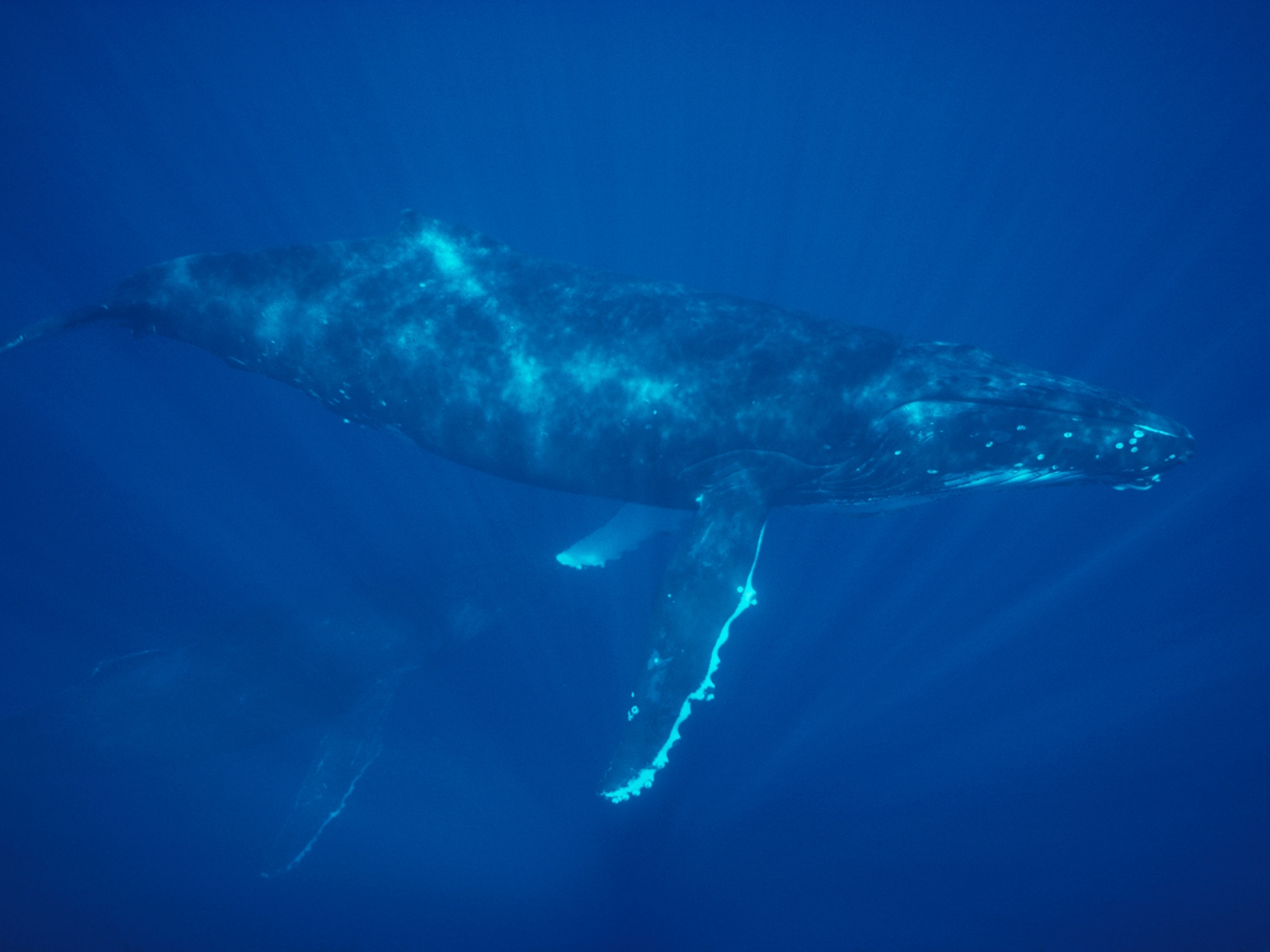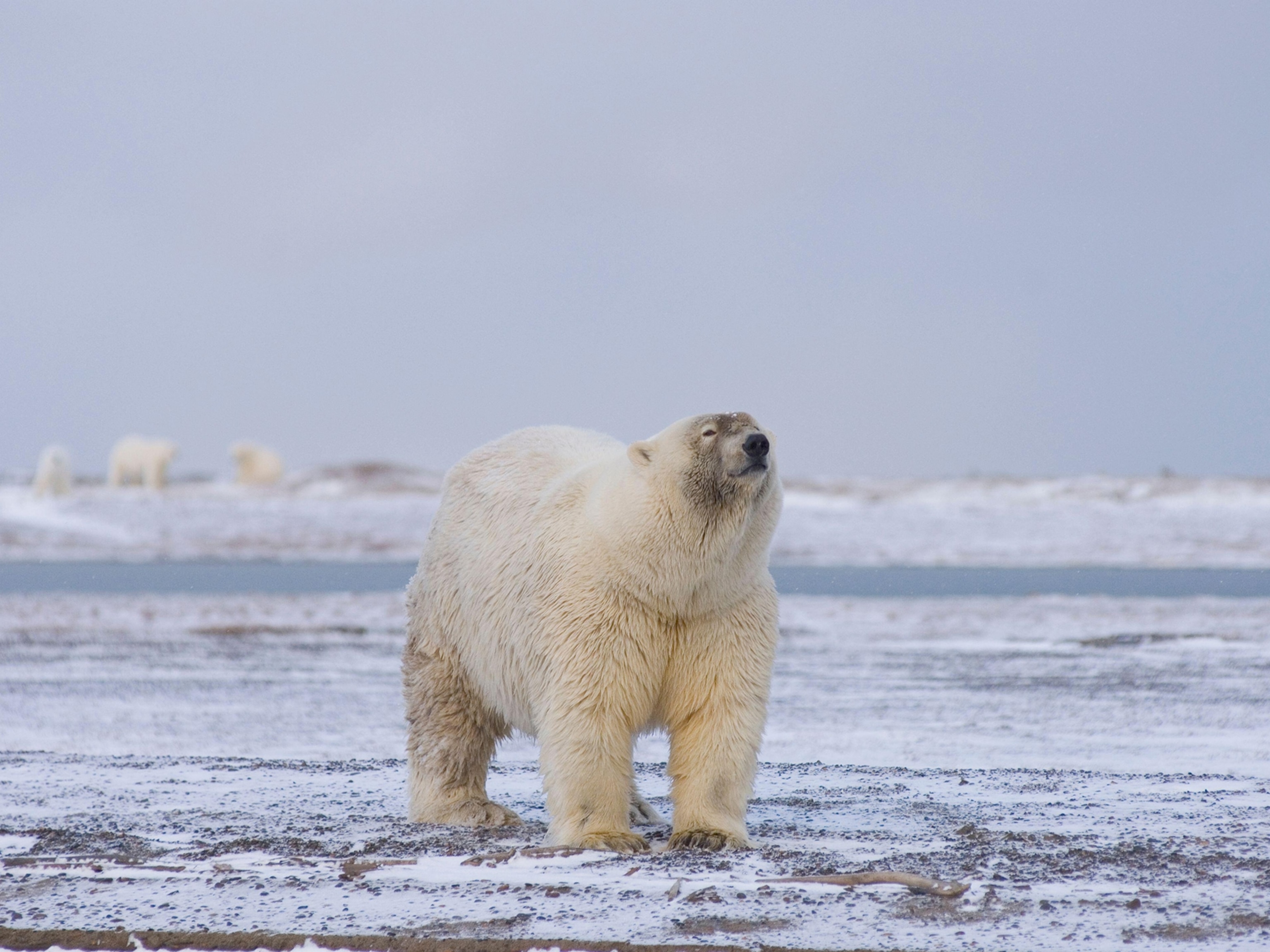
Is Climate Change Increasing the Disease Risk for Arctic Marine Mammals?
Climate change may be increasing the risk of disease for marine mammals in the Arctic, experts say.
Climate change is melting Arctic sea ice, leaving animals that depend on it high and dry. Marine mammals like ringed seals have to find new areas to give birth, raise their young, and haul out. And now, experts say, these animals must deal with another woe—emerging diseases.
Ice-free parts of the Arctic seem to be opening up new areas for more than just shipping companies. A new species of parasite, Sarcocystis pinnipedi, is on the move south, infecting gray seals and killing off as much as 20 percent of a population on a single island, researchers reported at the American Association for the Advancement of Science meeting on February 13.
This new parasite is a close cousin of S. canis, which can afflict bears and cause hepatitis or encephalitis in young dogs.

Parasites such as Toxoplasma gondii, found in cat feces and kitty litter, are also finding new areas of opportunity, making their way north and infecting beluga whales.
"Climate change is an unprecedented opportunity for pathogens to shift to new environments and cause new diseases," says Michael Grigg, chief of molecular parasitology at the National Institute of Allergy and Infectious Diseases in Bethesda, Maryland. (See "New Diseases, Toxins Harming Marine Life.")
Naive Populations
Toxoplasma is common in every warm-blooded vertebrate species, says Grigg. But now researchers have found it for the first time in a Beaufort Sea (map) population of beluga whales. Retrospective studies on beluga samples indicate the parasite first showed up there in 2006.
Treating the hardy parasite with chlorine bleach—the usual method—or storing it in dilute sulfuric acid won't kill it. The only way to get rid of Toxoplasma, says Grigg, is to boil or freeze it. But with fewer days below freezing in the Arctic, it has a greater chance of surviving until it reaches a host than it would have if temperatures weren't rising.
Scientists aren't sure how the parasite got to the Arctic, but the prevalence of cats in human settlements in the region could have something to do with it: Infectious stages of Toxoplasma are released in cat feces. Somehow those parasites are making their way to the ocean—likely via waterways—and infecting the whales.
Experts face an equally challenging puzzle as a new parasite species—the crescent-shaped S. pinnipedi—emerges in gray seals.
The Arctic's disappearing sea ice has allowed gray seals to come together with ringed seals, says Grigg. As warmer ocean temperatures bring forage fish like cod and capelin farther north than before, says U.S. National Oceanic and Atmospheric Administration biological oceanographer Sue Moore, gray seals are following the food-and encountering ringed seals.
And as both species pursue the same fish, S. pinnipedi can now move from its normal host—the ringed seal—into gray seals, which have never encountered it before.
Like a Cancer
In 2012, S. pinnipedi was blamed for the deaths of 406 gray seals on Hay Island (map) in Nova Scotia. Two were adults. The rest were pups two to three weeks old—a major blow to the reproductive potential of this 2,000-seal population, says Grigg.
The parasite acts like a cancer in gray seals, he explains. Normally, this kind of organism replicates inside a host until something tells it to switch to a slow-growing, cyst-forming stage that lets it infect its next host.
But that doesn't happen in gray seals. The parasite just keeps replicating in the liver until it completely destroys the organ. (Ringed seals have evolved to live with S. pinnipedi and don't seem to suffer the same fate.)

Grigg says the researchers who found the dead gray seal pups didn't see anything obviously wrong at first. But necropsies showed that their livers had been demolished.
A "New Normal"
Once researchers understood that S. pinnipedi had killed the gray seals, they looked to see if it had caused trouble elsewhere. They now think it also killed a stellar sea lion in the Gulf of Alaska in 2004, and two Hawaiian monk seals in 2010 and 2011. But they still don't know how the parasite got so far south.
Now Grigg and his colleagues are trying to understand S. pinnipedi's life cycle. To do so, they're collecting feces from ringed seals and their predators, polar bears.
Unfortunately, Grigg thinks there's nothing humans can do to halt these parasites. "It's just a new normal" that everyone, including the animals, will have to learn to live with, he said.
For gray seals, he adds, it could be a decade or two before they develop any kind of immunity against S. pinnipedi.
But "eventually," he says, "we'll come to some [kind of] balance."
Follow Jane J. Lee on Twitter.




